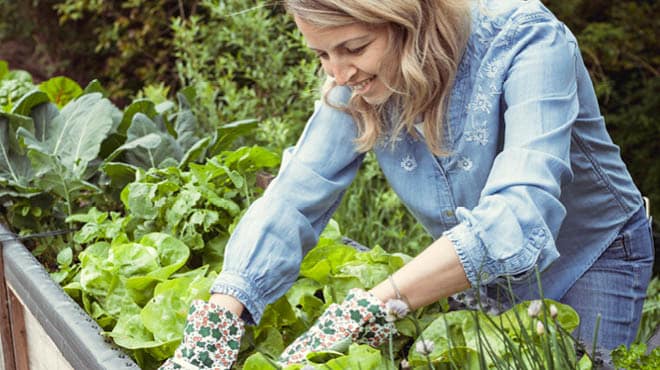Lasting Gardening Practices for an Eco-Friendly Yard
Lasting Gardening Practices for an Eco-Friendly Yard
Blog Article
The Comprehensive Guide to Horticulture: Discover the Benefits of Different Styles and Techniques
Horticulture incorporates a varied selection of designs and strategies, each offering unique advantages customized to specific choices and ecological contexts. From the organized sophistication of official gardens to the organic appeal of permaculture, comprehending these variations is vital for cultivating a space that not just grows however likewise shows individual values and aesthetics. Additionally, sustainable practices play an important role in enhancing local ecosystems and making certain lasting success. As we check out these different designs, it ends up being apparent that the selections made can dramatically influence both the garden's wellness and its contribution to the surrounding environment.
Recognizing Gardening Fundamentals
Understanding the fundamentals of gardening is crucial for cultivating a growing and sustainable yard. A successful gardening undertaking begins with a strong structure of understanding pertaining to soil, plant choice, and climate factors to consider. Healthy soil is the keystone of any garden; it gives vital nutrients, water retention, and an environment for useful microbes - Gardening. Checking soil pH and nutrient degrees can guide changes to maximize plant development.
Choosing the right plants is just as vital. Understanding their particular requirements-- such as sunshine, water, and spacing-- makes certain compatibility with the local climate and soil conditions. This selection process ought to also think about the growth practices and lifecycle of plants, enabling a well balanced and cosmetically pleasing yard.
In addition, reliable sprinkling techniques are critical. Over-watering and under-watering can both lead to plant stress and disease. Implementing a timetable based upon seasonal adjustments and plant demands can improve water effectiveness.
Popular Gardening Styles
What defines the significance of prominent gardening designs? Among the most prominent styles is the cottage yard, characterized by its casual layout and a vivid variety of flowers and veggies.
On the other hand, the formal yard embodies balance and order, typically featuring geometric patterns and thoroughly trimmed bushes. This design interacts elegance and class, with thoroughly picked plants that strengthen an organized aesthetic.
The Japanese yard offers a tranquil and meditative experience, using natural environments like water, rocks, and plants to create a peaceful setting. It concentrates on simpleness and equilibrium, encouraging consideration.
In addition, xeriscaping has gotten appeal, especially in deserts (Gardening). It prioritizes drought-resistant plants and effective water usage, advertising sustainability while enhancing landscape appeal
Advantages of Container Horticulture
Container gardening provides a plethora of advantages that make it an appealing choice for both newbie and seasoned gardeners alike. One of the main benefits is adaptability; containers can be placed in various areas, enabling gardeners to optimize sunshine direct exposure and create visually enticing setups. This adaptability makes it possible to garden precede where standard in-ground horticulture might not be viable, such as balconies, patios, or metropolitan atmospheres.
Furthermore, container horticulture supplies much better control over dirt conditions. Gardeners can personalize the soil mix to fit particular plants, making sure ideal drain and nutrient accessibility. This is especially valuable for people staying in locations with bad or polluted soil.
An additional considerable benefit is the lowered risk of parasites and illness. Container plants can be kept track of extra quickly, and any kind of problems can be attended to quickly. Furthermore, this technique can minimize the spread of intrusive varieties.
Sustainable Gardening Practices
Lasting gardening methods are crucial for promoting ecological health and improving biodiversity in our ecosystems. These methods focus on ecological balance, source conservation, and making use of natural methods to reduce unfavorable ecological impacts. By employing techniques such as composting, gardeners can reduce waste while enriching soil wellness, web thus cultivating a flourishing yard ecological community.
Water conservation is another important facet of sustainable gardening. Techniques such as rainwater harvesting, drip irrigation, and making use of drought-resistant plants can dramatically reduce water usage while guaranteeing that plants get get redirected here appropriate dampness. In addition, incorporating indigenous plant species into garden designs supports local wildlife and decreases the requirement for chemical fertilizers and pesticides, which can be unsafe to the setting.

Eventually, lasting horticulture practices not only add to much healthier yards but additionally promote a more durable atmosphere, offering long-lasting benefits to both the gardener and the bordering community.
Tips for Successful Horticulture
To cultivate a thriving yard, garden enthusiasts ought to focus on careful preparation recommended you read and thoughtful execution of their gardening strategies. Begin by analyzing the local climate and dirt conditions, as these elements significantly influence plant selection and growth. Select plants that are fit to your setting, thinking about native species that will certainly grow with minimal intervention.
Carrying out a well-structured format is important (Gardening). Use companion growing methods to advertise biodiversity and natural pest control, while guaranteeing each plant has ample space for growth. This not only enhances aesthetics yet likewise boosts overall plant health
Routine maintenance is essential to an effective yard. Develop a regular schedule for watering, weeding, and fertilizing. Mulching can aid maintain dampness and reduce weeds, while also including raw material to the dirt.
Routinely keeping track of plant health and growth will allow for timely treatments. Be open to learning and adapting; gardening is a continual procedure that benefits from experience and testing.
Verdict


In summary, the exploration of diverse gardening styles and techniques discloses their multifaceted benefits, adding to both visual allure and ecological wellness. Container gardening provides flexibility and availability, while sustainable methods enhance ecological stewardship.
Report this page